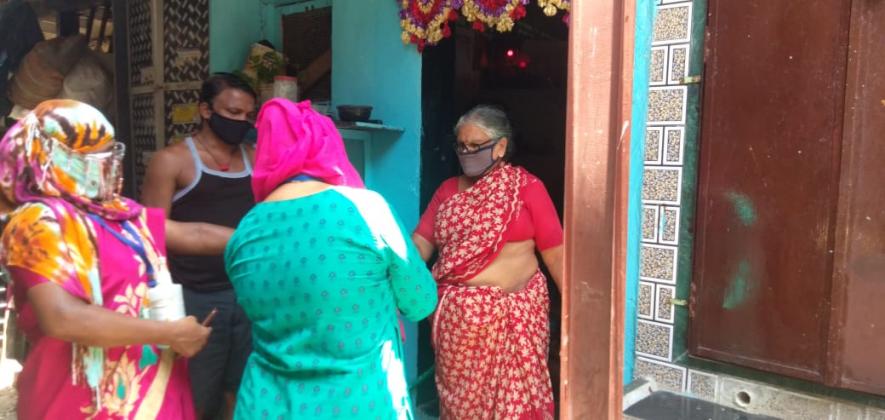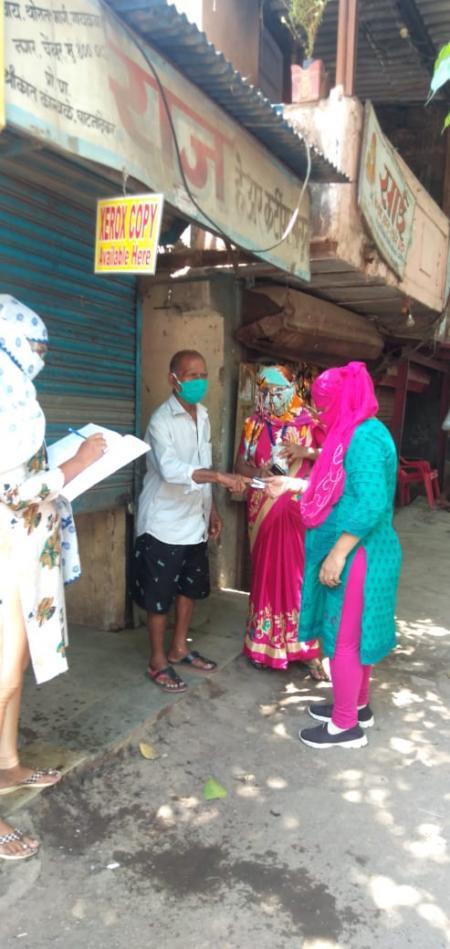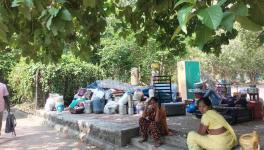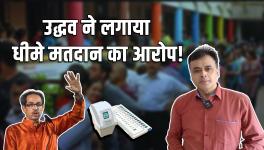Mumbai: How ‘Corona Warriors’ Head into Battle Without Equipment

Safiya Razaq Shaikh is a 50-year-old Arogya Sevika working in the 'M' ward, one of Mumbai’s administrative zones that has been badly affected by COVID-19. Arogya Sevika is a community health visitor (CHV). Their duty is to visit local areas, raise awareness about the disease, advise them on precautions, distribute pamphlets and also find possible patients. People like Safiya are hailed as 'COVID Warriors' by governments. However, they lack basic safety equipment needed to fight this battle.
Safiya visits about 150 households on a daily basis. She guides people on how to take care of themselves and their families, asks them whether anyone in the household has symptoms of COVID-19 and does surveys. Safiya makes visits to Ghovandi, another big slum in the city, comparable to Dharavi. As of now, the M ward has more than 1,200 patients. However, Safiya goes to work without N-95 masks, kits or even gloves.
"We get N-95 masks only when we go to take a patient to the hospital. On those assignments, we help in sealing the area and sanitising the locality. Only then do they provide us with N-95 masks. Otherwise they have given us washable masks. We do not have gloves, forget PPE kits," said Safiya.

There are close to 2,500 CHVs in Mumbai, according to BMC's health committee chairman Amey Ghole. They are not permanent employees of the Brihanmumbai Municipal Corporation. They are temporary health workers who get Rs 9,000 per month as an honorary sum. Earlier, they used to get Rs 5,000 per month but the amount has been increased in the last month due to their necessity given current times. They also get Rs 300 more per day when they go out for conducting COVID-19 surveys.
There are 171 health centres in Mumbai city, said Ghole, and the CHVs work in these centres. There were about 3,500 CHVs when the initiative began, decades ago, said Trishila Kambale, the General Secretary of the Mumbai Municipal Nursing and Paramedical Staff Union. However, the number has now fallen to 2500. There has been no recruitment since 2016, the last year that recruitment took place after 2014. At this time, 2,500 persons are doing the work of 3,500 CHVs.
Gita Tayade works as a CHV in the 'S' ward, visiting 60 households per day. The average number of work-hours for CHVs are five. The BMC administration tried to increase it but CHV unions opposed the move vehemently.
"Earlier, the staff at health centres were denying us entry into them. We were literally asked to wait outside because we were the ones who are out in front. Many CHVs in different wards were not even allowed to use the toilets. Later, however, we fought against such discrimination and it has now been resolved," said Gita. "But issues like gloves and masks are still there. These days, we cover our faces with dupattas and stoles. This is the reality," she added.
The Mumbai Municipal Nursing and Paramedical Staff Union has raised its voice against the lack of equipment for CHVs. "We have been continuously talking about it. Our girls are most exposed to the possibility of an infection. BMC and the state government should treat us as equal to health staff," said Trishila Kambale.
Many of the CHVs that NewsClick spoke to, said that a number of their colleagues have tested positive for COVID-19. However, the BMC does not have data on the exact number of CHVs that have tested positive. Amey Ghole accepted that the possibilities of CHVs getting exposed to virus are higher. "They are the front-line workers. So, many of them have tested positive. But BMC is taking care of all of them," he said.
Ghole also claimed that there would be a reduction in complaints regarding shortages of masks, gloves and kits over the next few days. "It is true that for the first few weeks, we did not have proper kits. We were completely reliant upon the kits provided by the central government. But we have noticed that the centre is not supplying them to us as per our demand. So, we started procuring the equipment ourselves. Now the situation is in control. We are directly procuring the kits, masks, gloves and other equipment and providing them to ward offices," he said. Ghole said that he would look into the issues raised by the CHVs.
Mumbai is India's most affected city right now. There are about 33,835 COVID-19 patients in the city. In this battle, CHVs are the real fighters on the ground. But the lack of equipment for them is hampering the battle against the novel coronavirus.
Get the latest reports & analysis with people's perspective on Protests, movements & deep analytical videos, discussions of the current affairs in your Telegram app. Subscribe to NewsClick's Telegram channel & get Real-Time updates on stories, as they get published on our website.
























